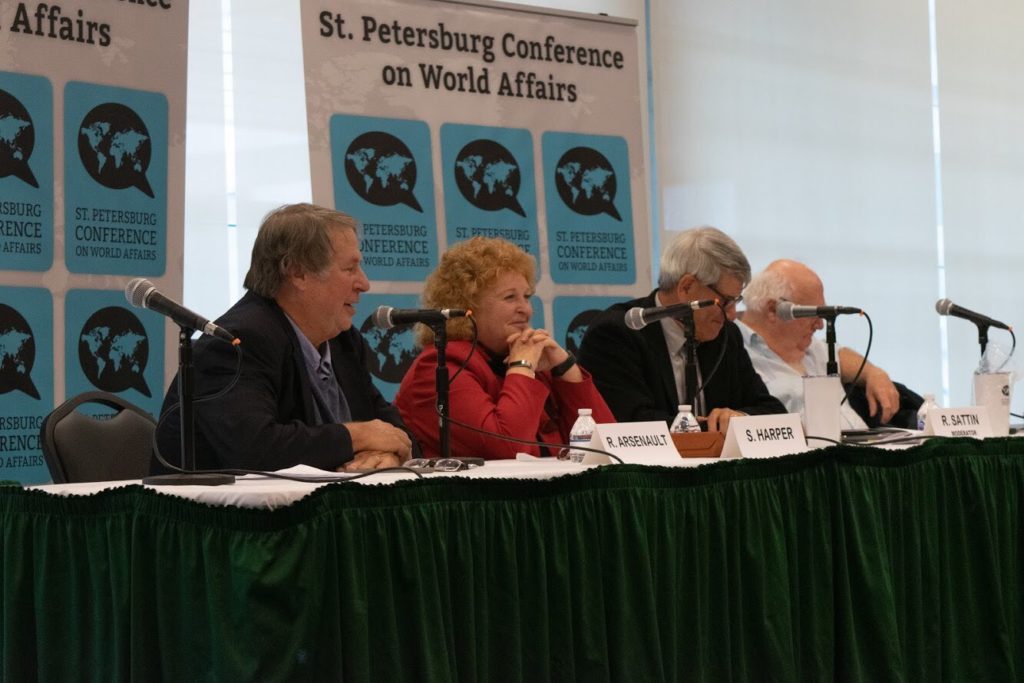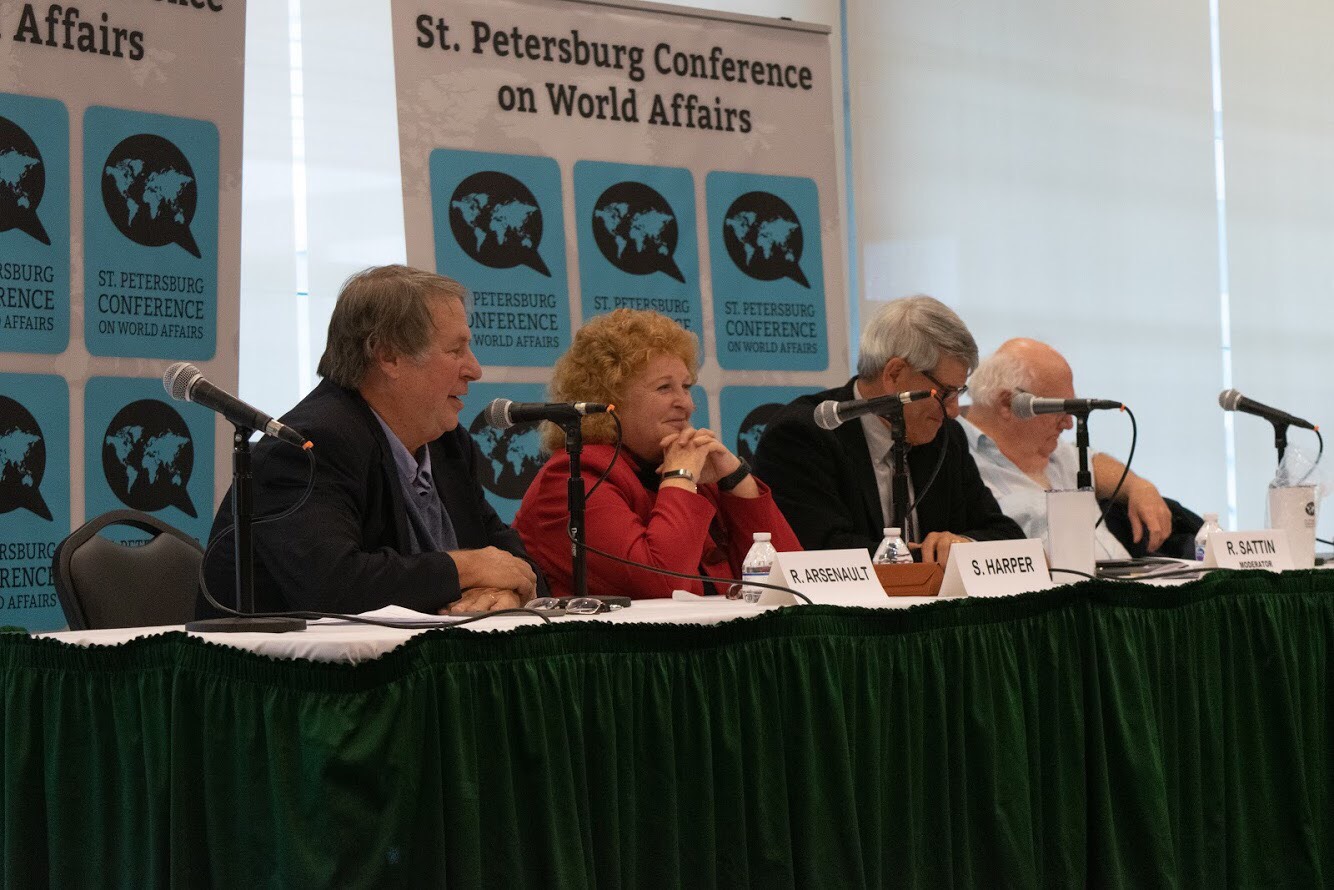
The U.S. now resembles “some of the more unsavory parts of the world,” says Arsenault (left) with Canadian diplomat Susan Harper. Jonah Hinebaugh | The Crow’s Nest
By Jonah Hinebaugh
The phrase “American exceptionalism” was used for the first time in 1930 – by Joseph Stalin.
In the decades that followed, those words became a point of pride in a country that relished being a moral leader in the world.
But over the last two years, the phrase has turned into a double entendre for America’s “not-so-pretty” nationalism, said Ray Arsenault, the John Hope Franklin professor of Southern history at USF St. Petersburg.
Now the U.S. is “much more like some of the more unsavory parts of the world in terms of breaking with democratic traditions and embracing authoritarianism,” Arsenault said during a panel discussion at the St. Petersburg Conference on World Affairs.
In earlier years, he said, “we would have called (those developments) un-American, and so, for better or for worse, I think Canada almost has become the new United States and they’re our last best hope.”
The panel discussion, titled “Let’s talk Canadian exceptionalism,” revolved around an opinion piece in the New York Times praising Canada as “the leader the word needs.”
Susan Harper, a panelist and Canadian diplomat, said her country earned that praise through programs like universal health care, open borders and, according to her, the 10th largest economy in the world and one of the safest as well.
“When you’re sitting beside the largest (economy in the world), sometimes you feel small, but relative to others, we’re in a pretty healthy position,” she said. “But like other economies, we have issues around the distribution of that wealth. We need to deal with those.”
The opinion piece cited the Syrian refugee crisis, comparing Canada’s acceptance of 40,000 refugees to the 12,000 accepted by the U.S.
Arsenault said the cultural gap between the U.S. and Canada has widened tremendously over the past couple of years.
The debate over refugees was only the beginning.
Since Donald Trump became president there have been threats to declare a state of emergency to build a border wall between the U.S. and Mexico – a step he took Feb. 15 – and his Muslim travel ban in early 2017.
“Pride goeth before a fall, and if you embrace this notion of the exceptional, I think it carries a very heavy burden, because inevitably some people are going to take this as a kind of chauvinistic superiority,” Arsenault said.
“I think we’ve seen this in American history, and I hope that maybe Canada will have a lot more sense … (to) use that label and not turn it into something ugly.”
In many cases, he said, that is “what we have done in the United States.”



